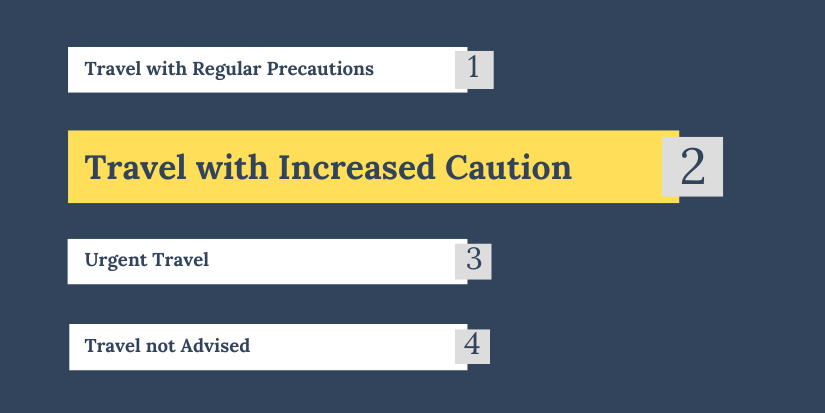
VISA REGIME
For holders of national passports and other travel documents: Visa is not required for a tourist stay of up to 3 months
For holders of diplomatic and official passports: Visa is not required for stays of up to 90 days
Note: Visa is required for the holder of an emergency travel document in transit
ENTERING AND LEAVING THE COUNTRY
Serbian citizens holding national passports do not need a visa for a tourist visit to and stay in Argentina for up to 90 days. Holders of an emergency travel document in transit require a visa.
SOCIAL SECURITY AGREEMENT
No social security agreement has been concluded.
USEFUL INFORMATION
HEALTH SITUATION — Serbia and Argentina do not have an agreement on mutual health insurance of their citizens, so travel health insurance is recommended. Although the general sanitary situation in Argentina is good, visitors are advised to drink only bottled water.
The emergency (ambulance) number is 107. Certain state hospitals offer free emergency interventions (Hospital General de Agudos "Dr. Juan A. Fernández", Av. Cerviño 3356, telephone: 011 48 08 26 00; and Hospital «Bernardino Rivadavia», Avenida Las Heras 2670, telephone: 011 48 09 20 00). One of the better private hospitals in Buenos Aires is Instituto Argentino de Diagnostico y Тratamiento (address: Marcelo Torcato de Alvear 2346, telephone: 011 49 65 11 00).
SECURITY SITUATION — Serbian citizens travelling to or staying in Argentina are advised to move in groups, to avoid staying out late, not to carry valuables with them, and to carry copies of travel documents. In case of any problems, the police should be contacted at 911.
The security situation in the city of Buenos Aires is not risky, but Serbian citizens are advised to adhere to the above security measures as a precaution.
There are criminal groups involved in smuggling near the borders, primarily with Brazil and Paraguay.
Crime in Buenos Aires and larger cities is at the level standard (expected) for large city centres. It is not recommended to wear valuable jewellery and watches. Occasionally, the so-called “express kidnapping” occurs, where the victim is forced to hand over all the money they are carrying and can take out of an ATM machine with a bank card. The use of mobile phones in public places is not recommended because of the particularly widespread theft of mobile phones. It is not recommended that minors and adolescents travel alone. Passports and all valuables should be kept in the hotel safe box, and travellers should carry a photocopy of their travel document. In public city transport, standard precautions against pickpocketing and theft should be taken. In the event of a street robbery, resistance is not recommended, as the attackers are usually armed.
Within the Argentine Federal Police, there is a Police Tourist Unit, which reports crimes against tourists. In Buenos Aires, this unit is located at 436 Corrientes Street, telephone: 43 46 57 48 (calls from Buenos Aires) and 08 00 999 50 00 (calls from other parts of the country).
TRANSPORT — Argentina's international airport is Ezeiza in Buenos Aires. Buenos Aires is also Argentina's main international port. The railway network is well organised in the Province of Buenos Aires.
Public transport within Argentina is in principle safe and well organised, with domestic flights and a developed network of bus lines. Roads all over the country are good.
Argentina is a member of the Geneva Convention on Road Traffic of 1949 and to drive in Argentina, foreign tourists must, in addition to a national driver's licence, have an international driving permit issued in accordance with international regulations, which is valid for a minimum of two years, and the driver must be 21 or more years old.
OTHER INFORMATION — Argentine customs regulations are very strict when it comes to temporary import and export of weapons, drugs and protected animal species.
When entering and leaving Argentina, travellers must declare cash money in excess of 10,000 US dollars as well as proof of money origin, if a larger amount is held. The Argentine currency is the peso. The exchange rate is very variable and needs to be checked before the trip. Due to the prevalence of counterfeit banknotes, cash money should not be exchanged at street vendors but, instead, at official exchange offices.
All major international payment cards are accepted. The price of hotel accommodation in Buenos Aires is on average between 50 and 250 US dollars. Food cost per day ranges from 30 to 70 US dollars. Prices for short-haul taxis are around 5 US dollars. A visit to the doctor costs on average between 20 and 100 US dollars.
Contact information:
During your stay in Argentina, for consular assistance and protection, you may contact the Embassy of the Republic of Serbia in Buenos Aires (address: Montevideo 696 C1019 ABN, BUENOS AIRES ARGENTINA), at the following numbers: +5411/4371-1359 , +5411/4371-1362 , and e-mail address: srb.emb.argentina@mfa.rs
